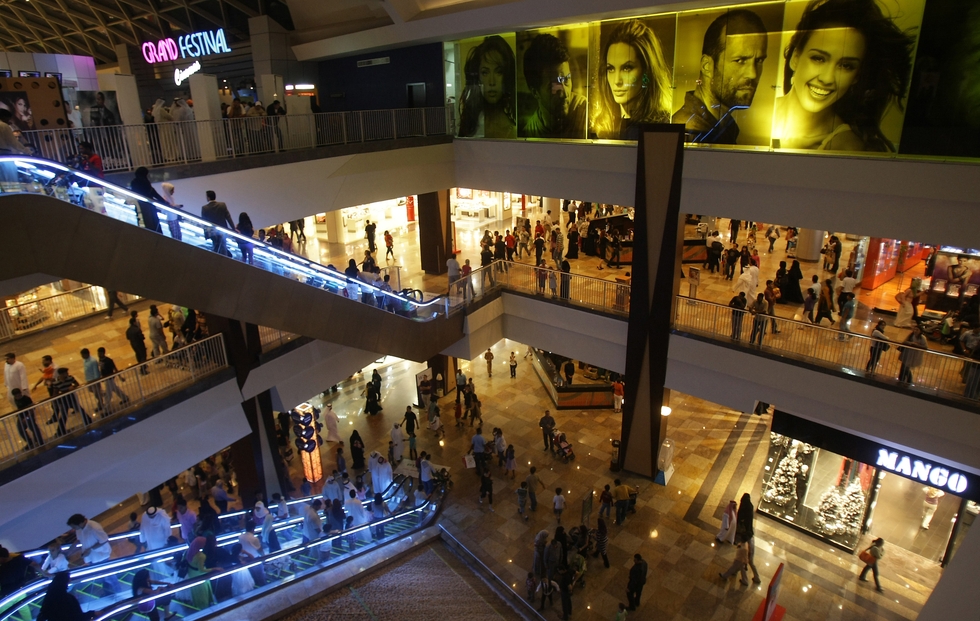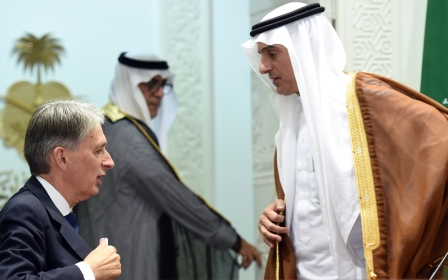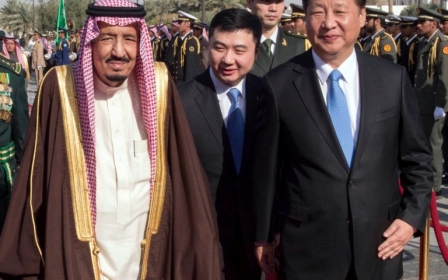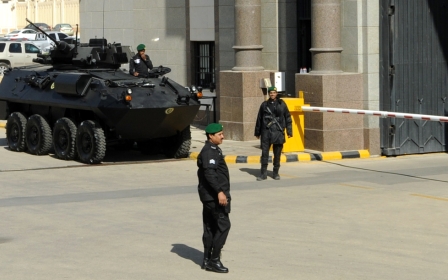Are expats fleeing Gulf states?

"I was told to quit as part of cost-cutting measures. I have been a long-time employee in the company. However, I don’t feel sad."
Those are the words of an expat in Oman, one among a number of senior executives who this month have had their employment terminated as the economy of the Gulf country reels from the impact of oil prices that have crashed by 70 percent. Although he may not be sad, others are.
Take the case of expat lawyers in Abu Dhabi. Western law firms are said to be shuttering offices "in droves," according to Reuters, as lucrative government contracts linked to the energy sector have failed to materialise. Things "[haven’t] happened as planned, and adding to that is the uncertain times we are in now, with oil prices around $30," lamented one. What is true for the lawyers is even truer for the ruling Gulf families. For them, things have most certainly not gone according to plan.
When the Saudi-led assault on non-conventional oil began more than a year ago, the thinking was that the Gulf states could comfortably ride things out. After all, oil prices are a cyclical game and previous lows have always been followed by large price per barrel increases. The GCC states were also riding high on huge sovereig-wealth funds swollen with cash from the last big surge in prices.
That would help to ease the pain and allow Saudi Arabia and its partners to emerge the winners, with non-conventionals, such as shale oil, chased out of the market.
It hasn’t worked out that way, and the price of oil has fallen off a cliff. Somewhere along the line the Saudis lost control of the agenda, and the world is now awash in cheap hydrocarbons. As one exasperated senior Saudi energy expert put it at a recent meeting in London, "We don’t know where the oil is coming from."
So austerity with a vengeance has come to the Gulf. Feeling the chill wind are expats, who for decades have lived tax-free and hugely subsidised lives. Now the good times may well and truly be over - for good.
In January, when in his now famous Economist interview the Saudi deputy crown prince and young man in a hurry Mohammed Bin Salman spoke of a Thatcher-inspired economic revolution, he took dead aim at foreign workers: "I have reserves now, ten million jobs that are being occupied by non-Saudi employees that I can resort to at any time of my choosing."
However, when the Economist raised the delicate issue of taxes, Mohammed Bin Salman veered quickly away, like a racehorse at a high obstacle: "There are no taxes," he said, even though he had just announced a VAT on what he called "accessories".
So why did he shy so suddenly? Because he well knows, as do the other Gulf ruling families, that if you start levying taxes citizens will want a say in how their money is spent; they will want transparency, accountability, an end to rampant ruling-house corruption, an elected parliament with teeth. They will want democracy.
The Gulf expats have no such leverage, and so they are having to get used to being the guinea pigs as austerity bites. It has already happened in Abu Dhabi, where expats pay much higher electricity and water tariffs than do citizens.
In September 2015, Qatar doubled electricity and water prices overnight. However, Qatari nationals, the wealthiest per capita in the world, were excluded from the price rise, an acknowledgement of the difficulties and the risks of introducing significant subsidy cuts to Gulf citizens. Bahrain has followed suit, with 1.3 million foreigners facing the gradual loss of subsidies on water, fuel, electricity and meat. No cash hand-out for them, such as the one Bahraini citizens will receive.
It is true that, even with the increases, rates are still extremely low by Western standards but it is a start, a crack in a comfortable arrangement that has existed for decades. Now that it has started, it can easily be widened.
So the question expats must now begin to ask themselves is this: "Are we going to have to start paying taxes in the countries where we work?" After all, they have no political clout, no representation in Shura councils or the parliaments in Bahrain and Kuwait, and even though in many of the states they form huge majorities of the population, they are without a voice.
That makes them tempting targets for the suddenly cash-conscious ruling elites who want to maintain lavish lifestyles without surrendering any part of their authoritarian hold on power. If Mohammed Bin Salman does want to create more work for Saudis, and he needs to, freeing up some of those 10 million jobs becomes a whole lot easier if he starts taxing the foreigners. Stay and pay, or go: the choice is yours.
There is one other concern, a big one for expat communities. Thus far, the Islamic State group has concentrated its attacks on Shia mosques and meeting halls and on government facilities in Saudi Arabia. But as happened in the early part of this century, when expats were targeted throughout the kingdom, a new wave of terrorism aimed at foreign workers must now be considered a real and present danger.
The first duty of the Gulf states is to protect their own citizens as best they can. Sadly, that makes expats a dangerously soft target for the jihadists. It would not take many terror attacks to turn what is now just a trickle of repatriated workers into a flood, with consequences that no one yet can predict.
- Bill Law is a Middle East analyst and a specialist in Gulf affairs. Follow him @BillLaw49.
The views expressed in this article belong to the author and do not necessarily reflect the editorial policy of Middle East Eye.
Photo: Shoppers visit a mall in Dubai, the United Arab Emirates, on 27 November, 2009 (AFP).
New MEE newsletter: Jerusalem Dispatch
Sign up to get the latest insights and analysis on Israel-Palestine, alongside Turkey Unpacked and other MEE newsletters
Middle East Eye delivers independent and unrivalled coverage and analysis of the Middle East, North Africa and beyond. To learn more about republishing this content and the associated fees, please fill out this form. More about MEE can be found here.





